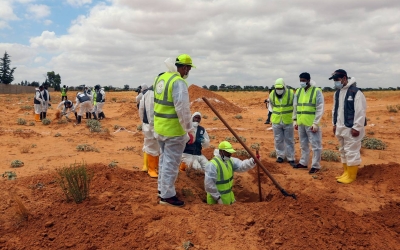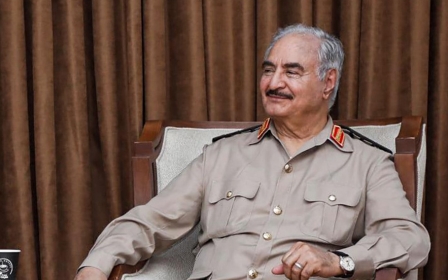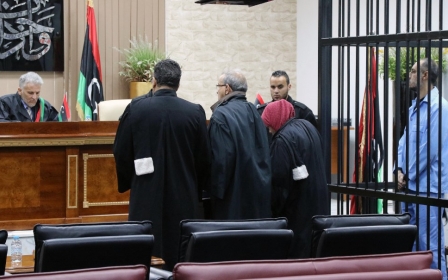Libya's eastern parliament withdraws confidence from unity government

The parliament in eastern Libya passed a no-confidence vote on Tuesday in the country's unity government, adding a new blow to UN-backed peace efforts.
A government spokesperson said at least 89 out of the 113 MPs present in the eastern city of Tobruk voted to withdraw confidence from the Tripoli-based administration of interim Prime Minister Abdulhamid Dbeibah.
This latest blow to UN peace talks come as tensions mount between Dbeibah's Tripoli-based government and the House of Representatives in the east, three months ahead of planned national elections.
Earlier this month, speaker Aguila Saleh ratified an electoral law that was seen as bypassing due process and favouring eastern general Khalifa Haftar.
The High Council of State (HCS), the parliament's upper house in Tripoli, rejected that legislation on Monday.
The law had been passed "without a legal vote or consensus", the HCS said, calling for presidential elections to be postponed for a year.
The council also reacted quickly to Tuesday's vote.
"The HCS rejects the no-confidence measure against the national unity government," a spokesperson said, adding that the vote contravened an agreement signed in the Moroccan town of Skheirat in 2015.
Dbeibah's transitional administration took office in February with a mandate to guide the North African country to elections on 24 December, part of a United Nations-led process aimed at ending a decade of violence following the fall of dictator Muammar Gaddafi.
That came after an October ceasefire between western Libyan forces and Haftar, who had waged a year-long assault on the capital that left thousands dead.
Critics of Saleh's move have pointed to a clause stipulating that military officials may stand in presidential polls on condition they withdraw from their posts three months beforehand.
Middle East Eye propose une couverture et une analyse indépendantes et incomparables du Moyen-Orient, de l’Afrique du Nord et d’autres régions du monde. Pour en savoir plus sur la reprise de ce contenu et les frais qui s’appliquent, veuillez remplir ce formulaire [en anglais]. Pour en savoir plus sur MEE, cliquez ici [en anglais].





